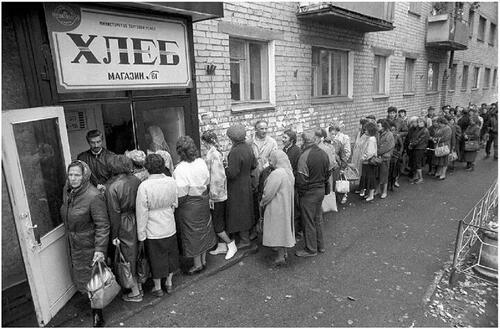
Most people still don’t understand that the fundamental question of scaling isn’t technical, it’s philosophical.
Monolithic chains want to give the same amount of cryptoeconomic security to a $1 transaction as they do a $1 million transaction. This is highly inefficient.
Nothing else in the economy works this way. If I want to send someone a postcard, I’ll use the postal service. But if I’m sending them a highly valuable work of art I’ll hire an armored car.
Solana says: use the same method for both. So either the postcard (or memecoin transfer) is too secure or the work of art (or a large DeFi trade) isn’t secure enough. Fees are the same so frivolous low-value transfers crowd out more important ones.
Monolithic scaling is cryptoeconomic socialism, and socialism is bad at distributing scarce resources.
The Soviet Union used to subsidize bread, so it was chronically over consumed. People would line up to get it, then let it go stale or feed it to livestock. Kids would play soccer with it, something they’d never do with better bread that cost more.
Sound familiar?
Local fee markets won’t fix this problem, because rationing imposed on top of socialism doesn’t fix distribution. The blockspace freed up by throttling one activity will just be taken up by another.
Further scaling the network/hardware/consensus layers won’t fix this problem, either. Any additional capacity will be taken up by even more small value transfers.
Modular scaling takes a more free-market approach to distributing blockspace.
Low-value transfers live on L2s or L3s where they pay small fees to get low (but sufficient) security.
High value transfers live on the L1 and (gladly) pay up for max security.
Are there trade offs? There are many.
Modular systems are fragmented and can be annoying to use. But so is hiring an armored car to send something valuable. That doesn’t mean you should mail a Warhol.
Solana remains an interesting experiment but is destined to be a chain for low-value transfers.
The other challenge it will face eventually is that socialist countries tend to have weak currencies.
Why bother holding the money if price isn’t the arbiter of distribution?
Most people still don’t understand that the fundamental question of scaling isn’t technical, it’s philosophical.
Monolithic chains want to give the same amount of cryptoeconomic security to a $1 transaction as they do a $1 million transaction. This is highly inefficient.
Nothing else in the economy works this way. If I want to send someone a postcard, I’ll use the postal service. But if I’m sending them a highly valuable work of art I’ll hire an armored car.
Solana says: use the same method for both. So either the postcard (or memecoin transfer) is too secure or the work of art (or a large DeFi trade) isn’t secure enough. Fees are the same so frivolous low-value transfers crowd out more important ones.
Monolithic scaling is cryptoeconomic socialism, and socialism is bad at distributing scarce resources.
The Soviet Union used to subsidize bread, so it was chronically over consumed. People would line up to get it, then let it go stale or feed it to livestock. Kids would play soccer with it, something they’d never do with better bread that cost more.
Sound familiar?
Local fee markets won’t fix this problem, because rationing imposed on top of socialism doesn’t fix distribution. The blockspace freed up by throttling one activity will just be taken up by another.
Further scaling the network/hardware/consensus layers won’t fix this problem, either. Any additional capacity will be taken up by even more small value transfers.
Modular scaling takes a more free-market approach to distributing blockspace.
Low-value transfers live on L2s or L3s where they pay small fees to get low (but sufficient) security.
High value transfers live on the L1 and (gladly) pay up for max security.
Are there trade offs? There are many.
Modular systems are fragmented and can be annoying to use. But so is hiring an armored car to send something valuable. That doesn’t mean you should mail a Warhol.
Solana remains an interesting experiment but is destined to be a chain for low-value transfers.
The other challenge it will face eventually is that socialist countries tend to have weak currencies.
Why bother holding the money if price isn’t the arbiter of distribution?
Loading…





